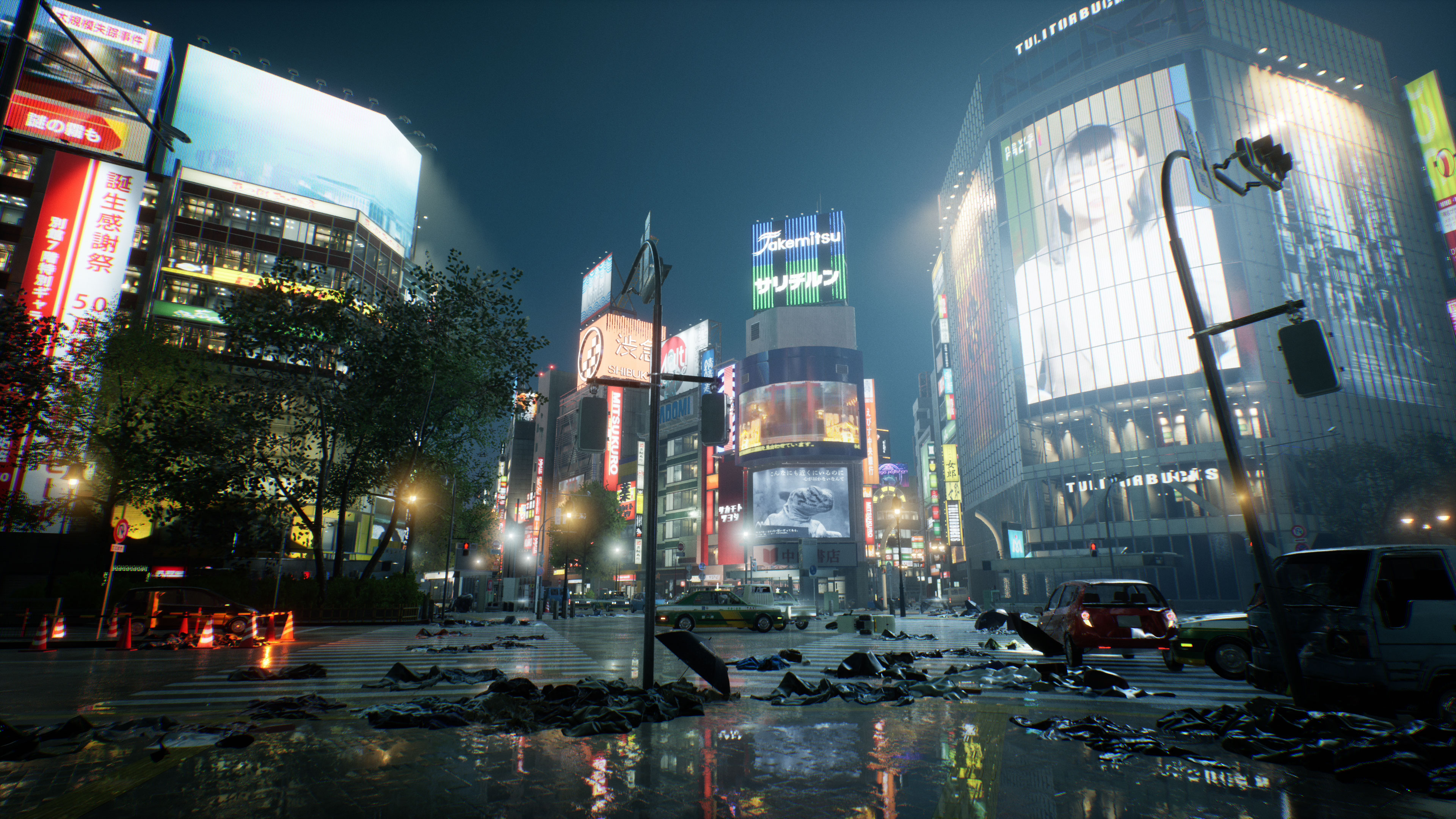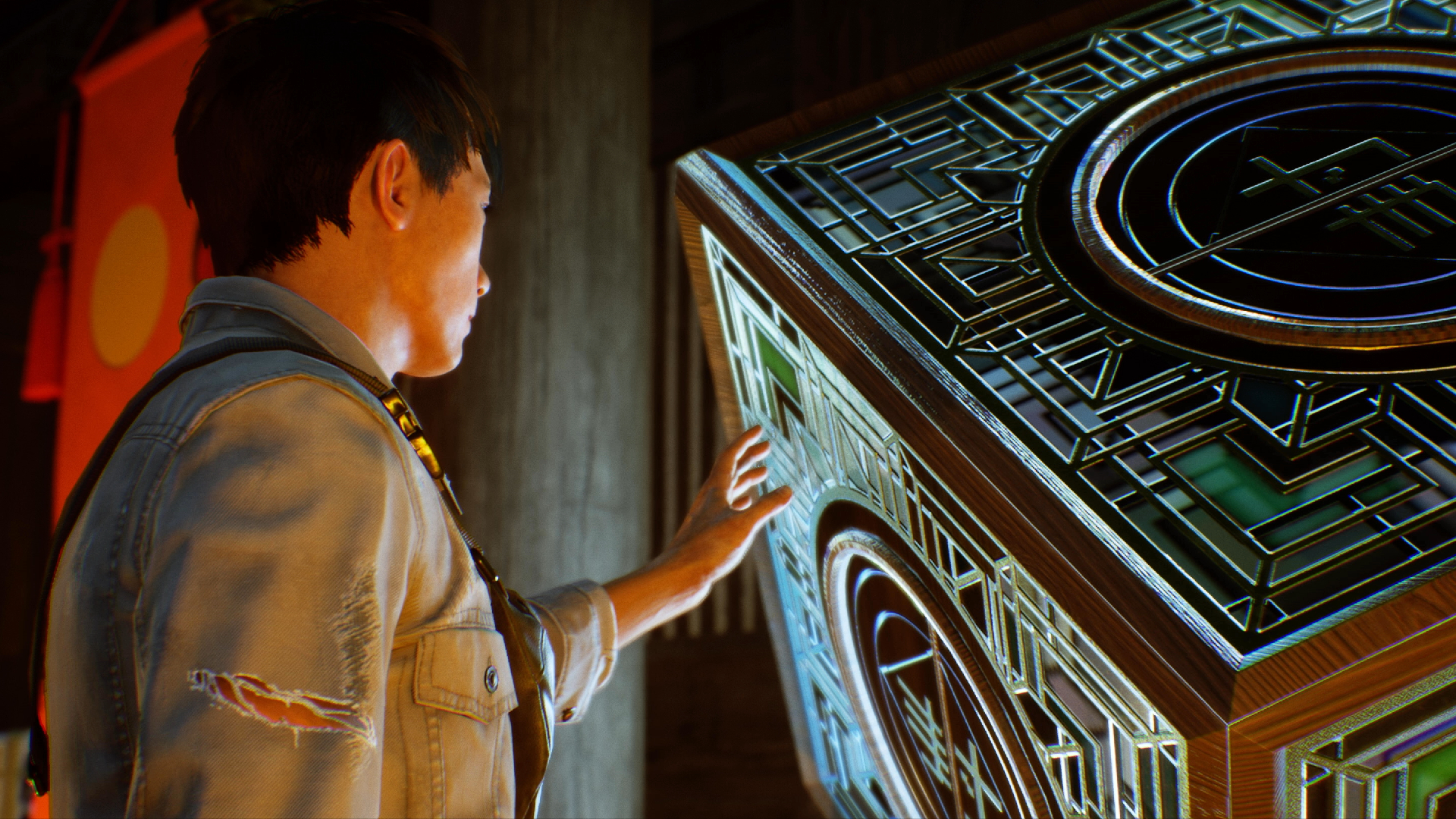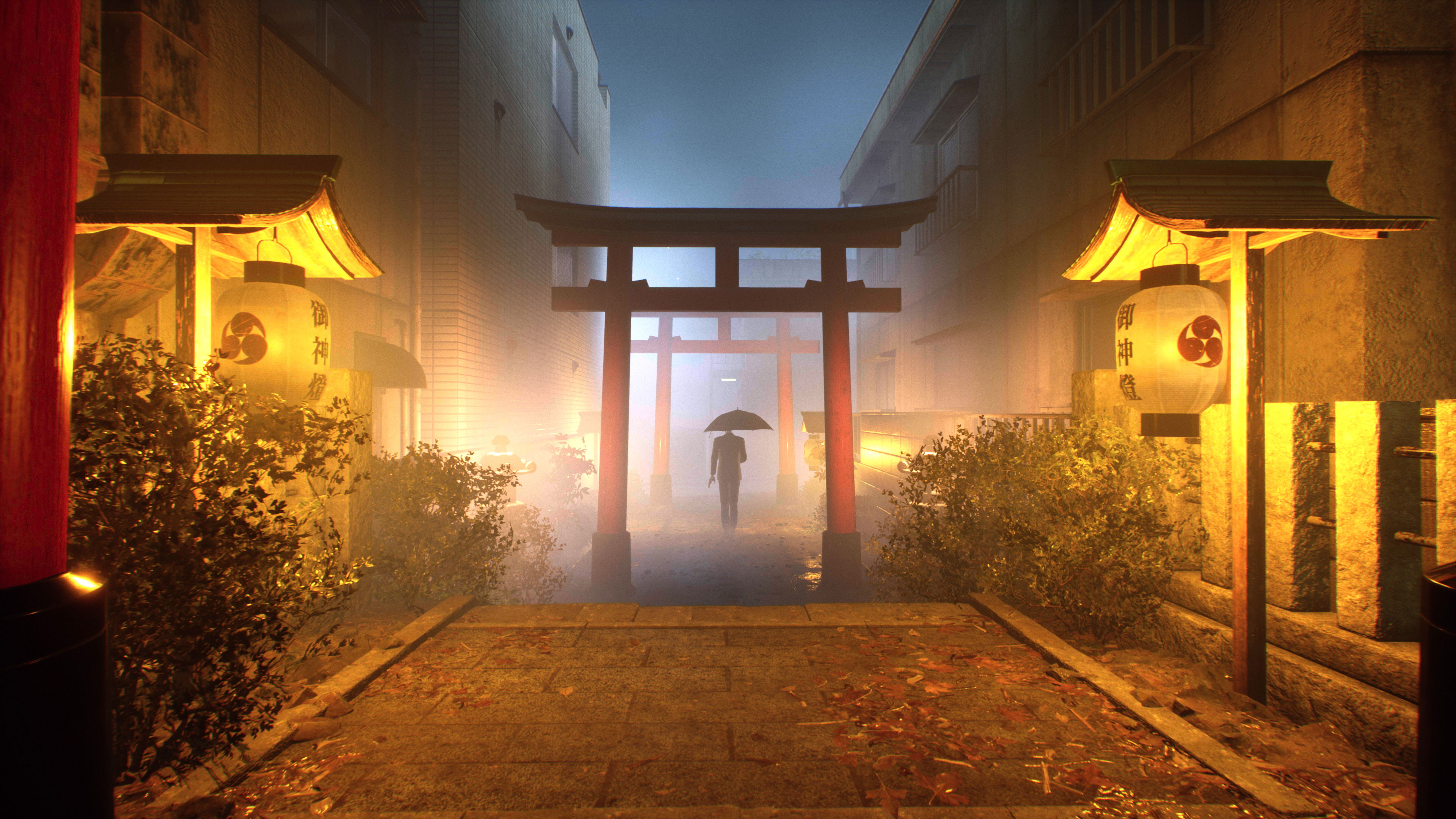Ghostwire Tokyo's real horror is in its human stories
Ghostwire: Tokyo's tales of final human moments are more chilling than the monsters

Usually, horror games get their kicks through jump scares, with horrific beasts that'll haunt your nightmares, or in causing the player physical pain (digitally, of course). While Ghostwire: Tokyo has its fair share of harrowing things, from tall suited businessmen with sacks for faces to creepy little girls in yellow raincoats that scream the moment they see you, it's the human stories that have stayed with me.
Ghostwire: Tokyo takes place in a haunted version of the Japanese capital, with all the living pulled into the spirit world, leaving the city awash with not only the aforementioned horrors, but also the blue shimmering silhouettes of what used to be the citizens. And it's absolutely teeming with the lingering sadness of those that are left behind – some 240,000 souls just waiting to be released into the afterlife by your own hand.
What this makes for is a city that's as noisy as it is devoid of life. The spirits that you'll come across are constantly narrating the last moments of their lives, trapped in a perpetual state of loss. As you walk closer to them, you'll hear those mumblings. Some are those you may not feel too sorry for, such as a thief who discovers his stolen purse has no money in it, but there are others whose words clearly belie such sadness in the closing moments of their life. A women's spirit down a dark alleyway wondering why someone is following her. A banker realizing his colleague has been committing fraud. Even just small things like someone taking a minute to wonder why their favorite noodle stand was closed down.
Ghost Stories

It's clear that Ghostwire: Tokyo has been made in part as a commentary on the pressures of a capitalist lifestyle while living in a big city. Should you dive into the game's huge database of everything and everyone you'll come across on your adventure, that much is painfully true.
Those suited spooks I mentioned before are officially known as Rain Walkers, "born from the hearts of those pushed to the point of utter exhaustion by their work". Another creature known as the Rain Slasher, is another undead worker – a woman this time, brandishing a huge knife, which is apparently the representation of the resentment it holds from personal conflicts in the workplace. Others are corrupt police officers who have "lost sight of what they once wished to protect", or female demons born from the sadness caused by being isolated from friends and family. There are even student monsters, turned to rage after being burdened by "hazy futures" and other anxieties.
When you strip it all back, the game's narrative is bleak – reflective of the many headlines and concerns that have hung over us all in recent years. For me, the more I listened as I explored Ghostwire: Tokyo's world, the more the main story felt so trivial. The ability for Akito – and by extension his own part-possession by the spirit of KK – to connect with these spirits and hear their stories became the main driving force for seeing what I'd find in the next district.

That was only heightened by the game's side missions too. They told such stories of loss, love, family, and friendship, blurring the lines between the spirit world and that of the living in a way that completely enhanced the story and made me want to learn more about Japanese folklore, such as the Yokai. These tales didn't shy away from the hardships that many of us face in life, which meant their stories weren't trivialized by the fact you're talking to a ghost.
Weekly digests, tales from the communities you love, and more
The range is impressive too. There are smaller stories like a young girl who's lost a prized possession (her grandmother's umbrella) or a businessman who can't understand why his "improvements" haven't stopped employees from leaving, to longer and more painful narratives involving a skyscraper with a murderous clause to the tenancy agreement and a hideous game of hide and seek.
I couldn't stop seeking them out, and then thinking of them for many hours afterwards. Despite the fact that the combat is Ghostwire: Tokyo is deliciously moreish and wrenching the cores from the monsters never gets old, it was the more human tales that made its world so compelling and monstrous.
When you're done with Ghostwire: Tokyo, why not check out some of the best action games available to play right now.

Sam Loveridge is the Brand Director and former Global Editor-in-Chief of GamesRadar. She joined the team in August 2017. Sam came to GamesRadar after working at TrustedReviews, Digital Spy, and Fandom, following the completion of an MA in Journalism. In her time, she's also had appearances on The Guardian, BBC, and more. Her experience has seen her cover console and PC games, along with gaming hardware, for a decade, and for GamesRadar, she's in charge of the site's overall direction, managing the team, and making sure it's the best it can be. Her gaming passions lie with weird simulation games, big open-world RPGs, and beautifully crafted indies. She plays across all platforms, and specializes in titles like Pokemon, Assassin's Creed, The Sims, and more. Basically, she loves all games that aren't sports or fighting titles! In her spare time, Sam likes to live like Stardew Valley by cooking and baking, growing vegetables, and enjoying life in the countryside.


